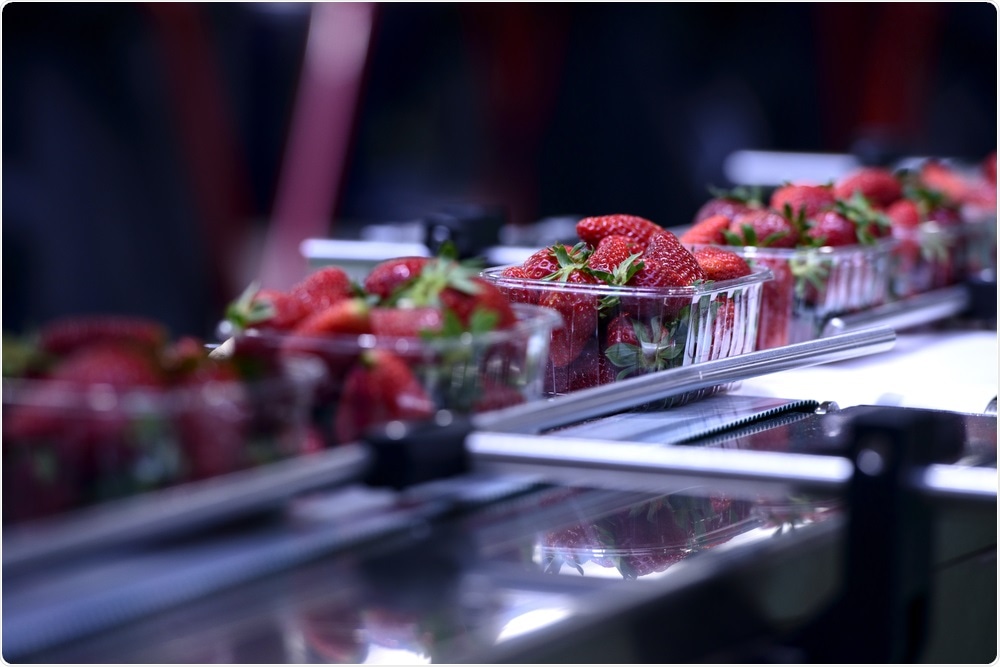According to a recent study published in the npj Food Science journal (a Nature partner journal), handheld or portable instruments are suitable for environmental control during the production of food and have important benefits in terms of ease of use and in detecting a wide range of bacteria.

Food Production. Image Credit: RomboStudio/Shutterstock.com
The research work, performed by scientists from the Teagasc Food Research Program and the APC Microbiome Ireland SFI Research Centre, is the first study to evaluate handheld DNA sequencers as a regular microbial monitoring solution for food production plants.
It is essential to detect the microorganisms present in the food. After all, these organisms can spoil food and lead to diseases; hence, regular tests on microbial life in food production plants are very important. However, existing methods to do this, though tried and tested, are known to have certain drawbacks.
Microbiology testing in the food chain has, and continues to, rely on older, classical microbiology testing such as the use of agar and petri dishes. This is a time-consuming approach and only microorganisms that are being specifically tested for are identified.”
Paul Cotter, Study Senior Author and Professor, Teagasc Food Research Centre
DNA sequencing provides an option. Rather than growing bacterial specimens in Petri dishes, DNA sequencing can quickly examine the bacterial DNA and detect the species in a specimen. But there might be a catch. Traditional DNA sequencing requires costly laboratory instruments and only professionally qualified lab technicians can conduct the process and examine the data.
Evidently, this is not an ideal fit for routine microbial monitoring in busy food processing centers. A more recent technology provides fast DNA sequencing with a user-friendly portable device, but until now, none has tested its ability in food production.
Professor Cotter and collaborators heeded by Dr. Aoife McHugh, set out to explore how these handheld sequencing technologies would compare with laboratory-based sequencing using swab specimens from a working dairy plant.
Remarkably, the portable device was found to be analogous to the larger laboratory-based sequencing method in terms of the number of bacterial species that could be detected in the specimens, indicating that it has potential as a regular food production testing device. But the compact device needs a minimum volume of DNA before it can work properly.
In the intensely-cleaned dairy facility, there were not enough bacteria in most of the specimens, hence, the team had to do an additional step to intensify the bacterial DNA until there was enough for analysis. This is a small obstacle, and more technological advances would help to resolve this problem.
As microbiologists, the use of DNA sequencing has revolutionized our understanding of fascinating microbial communities at the bottom of oceans, the tops of icebergs and a huge range of other environments. While such studies have the potential to impact on our lives in the longer term, the use of these technologies to enhance food quality and safety can have a very rapid impact on everyday life.”
Professor Paul Cotter, Study Senior Author, Teagasc Food Research Centre
“This study represents a key step towards a day when non-experts can use DNA sequencing tools to carry out microbiology testing in the food chain,” Professor Cotter concluded.
Source:
Journal reference:
McHugh, A. J., et al. (2021) Microbiome-based environmental monitoring of a dairy processing facility highlights the challenges associated with low microbial-load samples. npj science of food. doi.org/10.1038/s41538-021-00087-2.